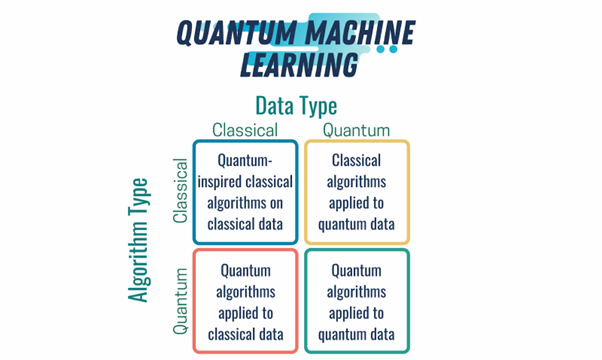Quantum computing has recently become a reality, with the goal of advancing several technological fields. One of the fields that will benefit from the advances in quantum computing is machine learning. But how can quantum computing help machine learning?
Quantum computing has become a buzzword in the past few years as a new computing model that could advance today’s computer capabilities to a new level. In addition, the premise behind quantum computing can be an asset in various applications considered essential today. Such as cybersecurity to, medical applications to machine learning.
The questions we will address today are:
How can quantum computing help advance the field of machine learning? What can it offer that classical computers failed to provide?
We first need to know how machine learning can be quantum to answer that question.
Let’s take a step back and look at machine learning from a wider perspective. Machine learning consists of two things: data and algorithms. So, following that logic, when we say quantum machine learning, are we referring to the data being quantum, quantum machine learning algorithms, or both?

Quantum machine learning is a term used by researchers to cover 4 types of techniques:
- Quantum-inspired classical algorithms on classical data.
- Classical algorithms applied to quantum data.
- Quantum algorithms applied to classical data.
- Quantum algorithms applied to quantum data.
All four methods are viable approaches to demonstrating how quantum can be applied to machine learning.
However, quantum can help machine learning algorithms in a variety of ways; two of the most important are:
1.It can speed up machine learning algorithms.
We all know that linear algebra is the core of machine learning. The fundamentals of all machine learning algorithms are a series of linear algebra applications known as BLAS (Basic Linear Algebra Subroutines). These sub-routines include matrix multiplication, Fourier transforms and solving linear systems.
When performed on a quantum computer, all of these sub-routines obtain exponential speedups.
However, today’s system is not pure quantum; the data is classically stored in a classical memory. This data is then sent to a quantum processor. The communication between classical memory and the quantum processor is why a sizeable exponential speedup can’t be reached. Therefore, a hybrid classical/ quantum system can help us achieve some speedup over using a purely classical approach.
2. Quantum parallelism can help train models faster.
One of the primary strengths of quantum computers is their ability to perform quantum superposition, which allows us to work on various quantum states simultaneously.
The argument here is that if we can train a model in a state of superposition of all possible training sets, the training process will be faster. For example, let’s run a classical machine learning algorithm on quantum computing. The best we can hope for is quadratic speedups. If we want more speedups, the algorithm also needs to be quantum.
Although using a quantum computer can offer some speedups, we shouldn’t expect exponential speedups at any time soon using the current hardware. However, maybe once fault-tolerant quantum computers are built, we can revisit this topic and see if things change.
For now, researchers pursuing quantum machine learning aim to discover new algorithms to help generate better solutions rather than speed up existing machine learning algorithms.
“Quantum computing has the potential to improve and reshape the current state of technology.”
Quantum computing has the potential to improve and reshape the current state of technology. Even though quantum computing is not a new field, it has gained traction and much attention in recent years due to hardware advancements made by various companies.
These advancements have moved quantum computing from pure theory to practice. For the first time in quantum history, anyone can access quantum machines and run small to moderate programs on real hardware through the cloud.
Machine learning shows some promise for improvements by quantum techniques. But, how exactly can quantum help machine learning? Answering that question is an ongoing and very active research field.
In this article, we have covered some possible ways quantum can improve machine learning applications and whether they are realistic.
Maybe quantum computing is not yet powerful enough to run real-world machine learning applications, but, the future of quantum computing is bright. It will hold many surprises and advancements, sooner than later, in many more fields, not just machine learning.








